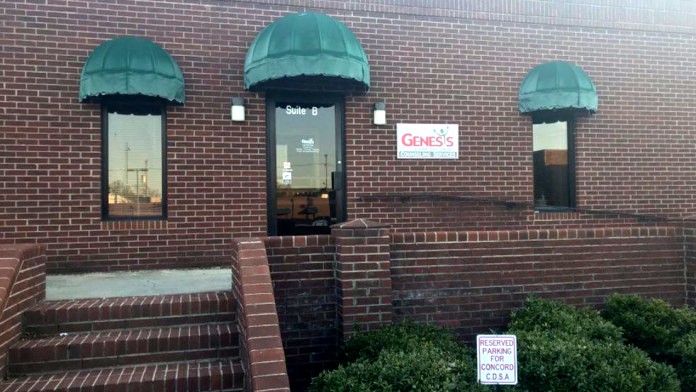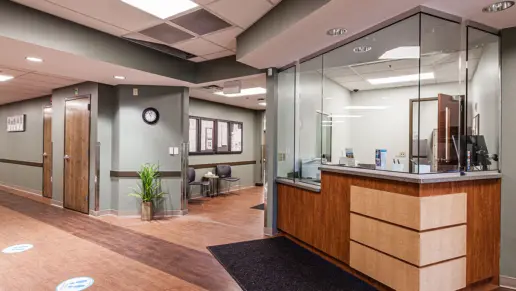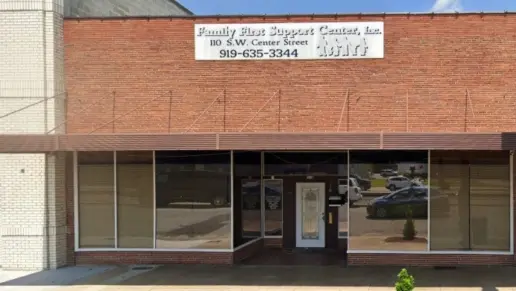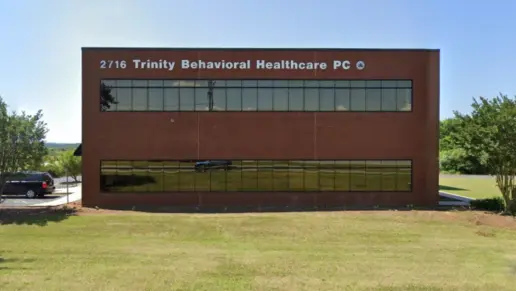About Genesis A New Beginning – Salisbury
Genesis A New Beginning – Salisbury, located in Salisbury, North Carolina, provides comprehensive counseling and addiction treatment services for youth and adults, including seniors. If you have a dual diagnosis, meaning you’re experiencing both mental health issues and substance use issues, there’s specialized counseling available here. They will bill Blue Cross Blue Shield insurance, but they also accept payment with major credit cards and cash. If you’re not insured, you may qualify for financing through Advanced Care.
Co-founders Terry and Donna Wise have spent nearly 20 years helping individuals and families overcome life’s toughest challenges. They’ve seen how rapidly lives and relationships can unravel, but they firmly believe there’s hope for healing and restoration.
If you become a client, you’ll immediately notice something unique about counseling here. At the heart of everything they do is a deep commitment to healing the whole person, but especially the spirit.
As a faith-based organization, the team is guided by Christian principles. Their mission is rooted in love, hope and a desire to see lives restored. When people ask what sets Genesis A New Beginning apart, the answer is simple: faith and clinical excellence.
In addiction counseling you’ll learn practical life skills. You’ll work with a counselor to learn how to manage stress, make thoughtful decisions and build healthier habits. Whether it’s improving communication, regulating emotions or setting achievable goals the focus is on learning skills that are proven to work.
If you’re facing DWI charges, support is available here to help you rebuild your life. The center is ADETS certified, which means they’re qualified to provide education and support for individuals dealing with alcohol and drug-related offenses.
Their counseling sessions can help you get to the root causes of addiction. Your counselors will offer several tools to help you achieve long term sobriety. Alcohol and drug screening is part of this recovery process. It’s a way to stay accountable and track your progress.
Many people today look for support that’s rooted in faith. Their Christ-based pastoral counseling provides spiritual guidance designed to provide that support. Genesis A New Beginning blends spiritual support with a compassionate, proven approach to help clients find hope and healing. It could be a great option for anyone wanting to connect their faith with recovery.
Rehab Score
Gallery

Location
Other Forms of Payment
Self-pay involves paying for treatment out of your own pocket. You can use savings or credit, get a personal loan, or receive help from family and friends to fund your treatment. If you don't have insurance or your insurance plan doesn't cover a specific program, self-pay can help ensure you still get the care you need.
Private insurance refers to any kind of healthcare coverage that isn't from the state or federal government. This includes individual and family plans offered by an employer or purchased from the Insurance Marketplace. Every plan will have different requirements and out of pocket costs so be sure to get the full details before you start treatment.
Medicaid is a state based program that helps lower-income individuals and families pay for healthcare. Medicaid covers addiction treatment so those enrolled can use their coverage to pay for rehab. When a program accepts Medicaid the client often pays very little or nothing out of their own pocket.
Addiction Treatments
Levels of Care
Treatments
Many of those suffering from addiction also suffer from mental or emotional illnesses like schizophrenia, bipolar disorder, depression, or anxiety disorders. Rehab and other substance abuse facilities treating those with a dual diagnosis or co-occurring disorder administer psychiatric treatment to address the person's mental health issue in addition to drug and alcohol rehabilitation.
Mental health rehabs focus on helping individuals recover from mental illnesses like bipolar disorder, clinical depression, anxiety disorders, schizophrenia, and more. Mental health professionals at these facilities are trained to understand and treat mental health issues, both in individual and group settings.
Substance rehabs focus on helping individuals recover from substance abuse, including alcohol and drug addiction (both illegal and prescription drugs). They often include the opportunity to engage in both individual as well as group therapy.
Programs


Clinical Services
Whether a marriage or other committed relationship, an intimate partnership is one of the most important aspects of a person's life. Drug and alcohol addiction affects both members of a couple in deep and meaningful ways, as does rehab and recovery. Couples therapy and other couples-focused treatment programs are significant parts of exploring triggers of addiction, as well as learning how to build healthy patterns to support ongoing sobriety.
Research clearly demonstrates that recovery is far more successful and sustainable when loved ones like family members participate in rehab and substance abuse treatment. Genetic factors may be at play when it comes to drug and alcohol addiction, as well as mental health issues. Family dynamics often play a critical role in addiction triggers, and if properly educated, family members can be a strong source of support when it comes to rehabilitation.
Group therapy is any therapeutic work that happens in a group (not one-on-one). There are a number of different group therapy modalities, including support groups, experiential therapy, psycho-education, and more. Group therapy involves treatment as well as processing interaction between group members.
In individual therapy, a patient meets one-on-one with a trained psychologist or counselor. Therapy is a pivotal part of effective substance abuse treatment, as it often covers root causes of addiction, including challenges faced by the patient in their social, family, and work/school life.
Life skills trainings involve all the skills a person must have in order to function successfully in the world. These include time management, career guidance, money management, and effective communication. Truly successful addiction recovery is based on the ability to not only live substance-free, but to thrive. Life skills teaches the practical necessities of functioning in society, which sets clients up for success in life, and therefore sobriety.
Trauma therapy addresses traumatic incidents from a client's past that are likely affecting their present-day experience. Trauma is often one of the primary triggers and potential causes of addiction, and can stem from child sexual abuse, domestic violence, having a parent with a mental illness, losing one or both parents at a young age, teenage or adult sexual assault, or any number of other factors. The purpose of trauma therapy is to allow a patient to process trauma and move through and past it, with the help of trained and compassionate mental health professionals.
Contact Information
417 N. Main St Suite B
Salisbury, NC 28144


